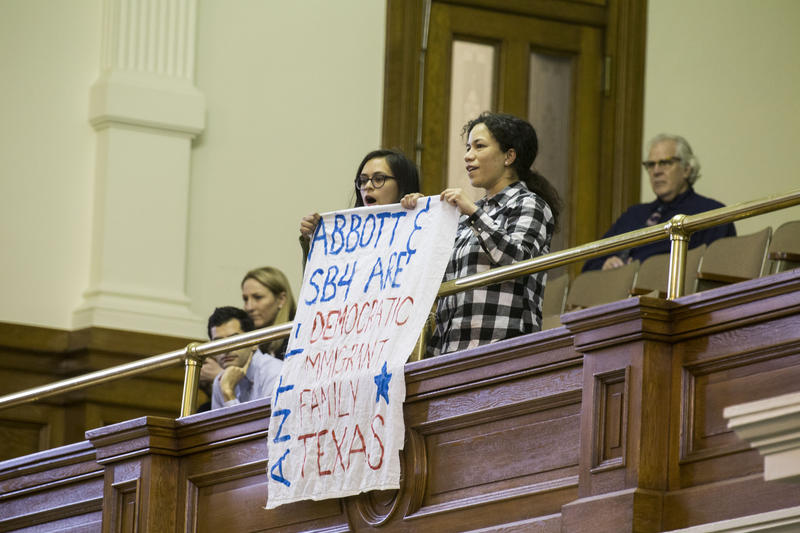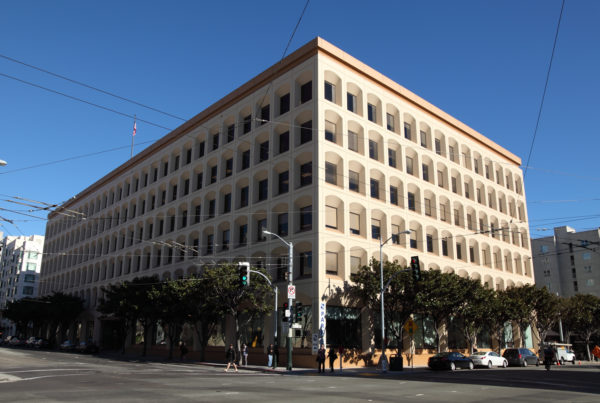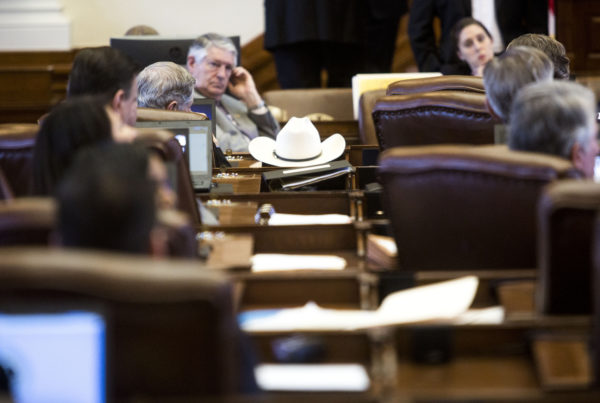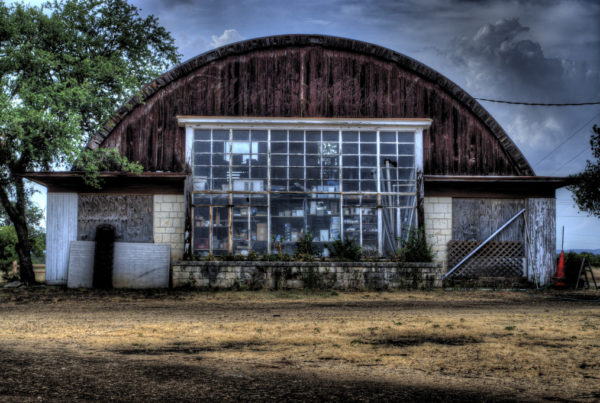No sanctuary in Texas – that seems to be the top story across the Lone Star State, as a controversial bill essentially banning governments from implementing “sanctuary city” policies for immigrants who are unauthorized, heads to the governor’s office. The Texas Senate voted 20-11 to approve the version of Senate Bill 4 that the House passed last week. Gov. Greg Abbott tweeted “I’m getting my signing pen warmed up.”
No surprise there. Banning sanctuary cities was one of four emergency items laid out by the governor during his January State of the State address. It should be noted, for the record, that sanctuary cities do not currently exist in Texas. But make no mistake – this is more than just sending a message or making a political statement. This bill has teeth.
James Barragán, state government reporter for the Dallas Morning News, says one of the most controversial aspects of SB4 is what has been called the “Show Me Your Papers” provision, a nod to Arizona’s controversial immigration law.
“The references to ‘Show Me Your Papers’ are part of a provision in the bill that would allow local law enforcement officers to ask anybody during a legal detention about their immigration [status],” Barragán says. “That could be any stop that is made – from a routine traffic stop to a police officer stopping you on the street because you look suspicious. And so the concern is that it will lead to racial profiling and discrimination against the state’s growing Latino population.”
Barragán says that whether police can ask anyone’s immigration status at any time is a gray area in SB4. Proponents of the bill say it would not allow for racial profiling, while opponents say the language of the law makes that a possibility.
“The thing about ‘sanctuary cities’ is that there is no actual legal definition of it,” Barragán says. “I think the main one that Governor Abbott has targeted is Travis County here in Austin. And he has pulled some of the state funding from his office … and really made [Travis County] the guinea pig of his sanctuary cities battle.
“But there is no clear definition of it. I think the thing that opponents of ‘sanctuary cities’ will say is that if you are not complying with all requests from federal immigration authorities to turn over unauthorized immigrants in your custody, you are a ‘sanctuary city,’ or a ‘sanctuary county.’”
Barragán says the problem is that requests from immigration officials to detain suspected unauthorized immigrants is that they are only requests.
“I think that there will be legal battles over this legislation,” he says, “and I think that’s one of the points that’s going to be made – that the state is now requiring something that even the federal government doesn’t require.”
Barragán says cities and counties who don’t comply with the provisions of SB4 would face fines of up to $25,000 a day for each violation. The bill also provides criminal penalties for law enforcement officials who create sanctuary city policies that violate the state ban on them.
“That’s a little bit softer [than] the original version of the law, which said that any elected official could be charged with a criminal class A misdemeanor,” Barragán says. “But that got watered down a little bit in the House version.”
Law enforcement is far from supportive of SB4. Police chiefs from Dallas, Fort Worth, Houston, San Antonio and others, penned an op-ed column in the Dallas Morning News, expressing their concerns.”
Barragán says every major law enforcement group in the state opposes the legislation.
“If you make local law enforcement officers enforce immigration laws,” Barragán says, “there are immigrant communities, and even just Latino communities with immigrant family members, that are going to be scared to report crimes because they’ll fear that their family members are going to be deported if they report those crimes. So having the immigrant communities be scared to report crimes to law enforcement, they argue, would then make the community less safe.”
Written by Shelly Brisbin.
















